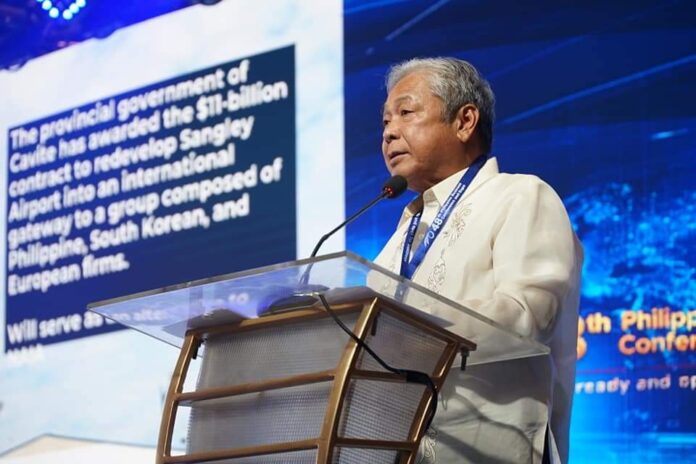-
The Department of Transportation is working on separating conflicting functions of the Philippine Ports Authority and Civil Aviation Authority of the Philippines
-
Transport Secretary Jaime Bautista has requested the DOTr undersecretary for maritime to figure out how to set apart the regulatory and commercial functions of the PPA
-
DOTr is proposing the enactment of a bill creating a Philippine Airports Authority with separate CAAP’s commercial functions
-
Three bills are filed in Congress aiming to separate the conflicting functions of PPA and CAAP
The Department of Transportation (DOTr) is seeking to separate the conflicting functions of its attached agencies, the Philippine Ports Authority (PPA) and Civil Aviation Authority of the Philippines (CAAP).
Transport Secretary Jaime Bautista requested the DOTr undersecretary for maritime to “work on how we can separate” the regulatory and commercial functions of the PPA, noting that a law may be needed to do so.
“One of the first things that I noticed when I joined government is that there are many agencies that are both operators and regulators, and one of them is the Philippine Ports Authority,” Bautista said at the recent 48th Philippine Business Conference and Expo.
The transport chief noted that CAAP similarly has both regulatory and commercial functions, and DOTr is proposing the enactment of a bill creating a Philippine Airports Authority (PAA) to segregate their functions.
Several industry stakeholders and business groups have for years been requesting and recommending the separation of PPA’s functions, citing conflict of interest and saying exercising both functions “unnecessarily increases logistics costs.”
In particular, stakeholders want to revoke Letter of Instructions (LOI) 1005-A, signed in April 1980, by deleting Instruction Nos. 3 and 4, thus removing PPA’s share in cargo-handling revenues.
The Export Development Council (EDC) earlier said Instruction Nos. 3 and 4 constitute a “conflict of interest” as the regulator “now benefits from its own regulation and, hence, provides the regulator, herein the Philippine Ports Authority, an incentive to increase the rate to improve its financial health.”
Several bills have been filed with Congress seeking to separate the regulatory and commercial functions of PPA and CAAP.
For the current 19th Congress, these include House Bills No. 1400 and 2234, and Senate Bill No. 1073.
HB 1400 aims to separate PPA’s functions by converting it into a Philippine Ports Corporation (Philports) and transferring its regulatory function to the Maritime Industry Authority (MARINA).
Under HB 1400, Philports “will no longer be a revenue-generating entity but just a service provider” and “will merely collect the fees and dues approved by MARINA.”
READ: House bill seeks to strip PPA’s regulatory power
Philports will also no longer share i cargo-handling n revenues from private commercial ports.
HB 2234 seeks to create a Philippine Airports Corporation (PAC) while SB 1073 intends to create PAA. Both cited the need to separate CAAP’s commercial and regulatory functions.
PAC will have exclusive power and authority to create and manage airports while PAA will focus solely on the planning, construction and operation of airports.
All three bills are currently pending at the Committee level.





